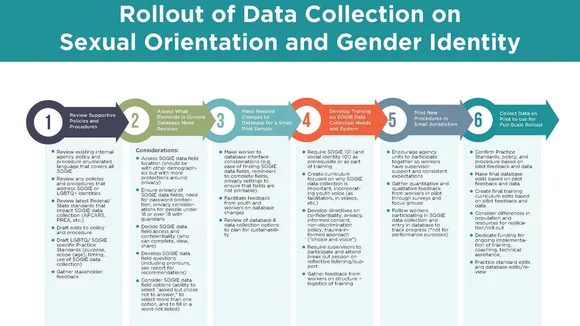Imagine stepping into a doctor’s office where every form, every question, and every diagnosis is tailored not just to your symptoms, but to who you are in your entirety. This vision, once a distant dream for many within the LGBTQ community, is inching closer to reality as the healthcare and pharmaceutical industries begin to recognize the indispensable value of collecting comprehensive data on sexual orientation, gender identity, and intersex status. The initiative, aimed at transforming healthcare delivery and outcomes, underscores a broader commitment to diversity, equity, and inclusion (DEI) principles, ensuring that healthcare is both respectful and reflective of every patient’s needs.
A Long-Overdue Recognition
In light of recent findings, the absence of specific health data for LGBTQ individuals has been linked to significant disparities in healthcare access, engagement, and outcomes. Notably, the lack of guidelines for conditions prevalent within the LGBTQ community — such as higher risks of certain cancers, cardiovascular diseases, and mental health issues — has been a stumbling block in providing effective and personalized care. Reports, including one from the National Academies of Sciences, Engineering, and Medicine, have highlighted the dire consequences of this oversight, from increased health risks to the exacerbation of social and structural stigma.
Despite these challenges, there’s a growing momentum among healthcare providers and the pharmaceutical industry to bridge this gap. The move by Bristol Myers Squibb to integrate LGBTQ characteristics in clinical trials marks a watershed moment, signaling a shift towards more inclusive and comprehensive health data collection practices. However, as these initiatives gain ground, there remains a pressing need for broader industry action to ensure that LGBTQ patients are not just included but are central to healthcare research and delivery.
Breaking Barriers, Building Bridges
The call to normalize the collection of sexual orientation, gender identity, and intersex status as standard demographic data is not just about inclusivity; it’s about enhancing the accuracy and quality of healthcare for all. Evidence suggests a high willingness among LGBTQ individuals to share this information when it is collected in a respectful, confidential manner. This openness presents a unique opportunity for the healthcare sector to understand disparities better and tailor interventions that address the specific needs of LGBTQ patients.
However, the path forward is not without its challenges. Concerns about privacy, discrimination, and the potential misuse of sensitive data are legitimate and require careful consideration. The implementation of robust privacy protections and the creation of safe spaces for LGBTQ individuals to share their experiences are essential steps in building trust and ensuring the success of these initiatives.
The Road Ahead
As we look to the future, the integration of LGBTQ health data into standard medical practices offers a beacon of hope for many who have felt marginalized within the healthcare system. The potential of this data to uncover new insights, inform public health policies, and drive innovation in treatment and care is immense. Yet, realizing this potential will require not just changes in data collection practices but a cultural shift within the healthcare and pharmaceutical industries towards greater empathy, understanding, and respect for the diversity of patient experiences.
While the journey towards fully inclusive healthcare is far from complete, the steps being taken to recognize and address the unique needs of LGBTQ individuals mark significant progress. In the end, the goal is simple yet profound: to ensure that everyone, regardless of their sexual orientation, gender identity, or intersex status, receives healthcare that is not just adequate, but exemplary.







